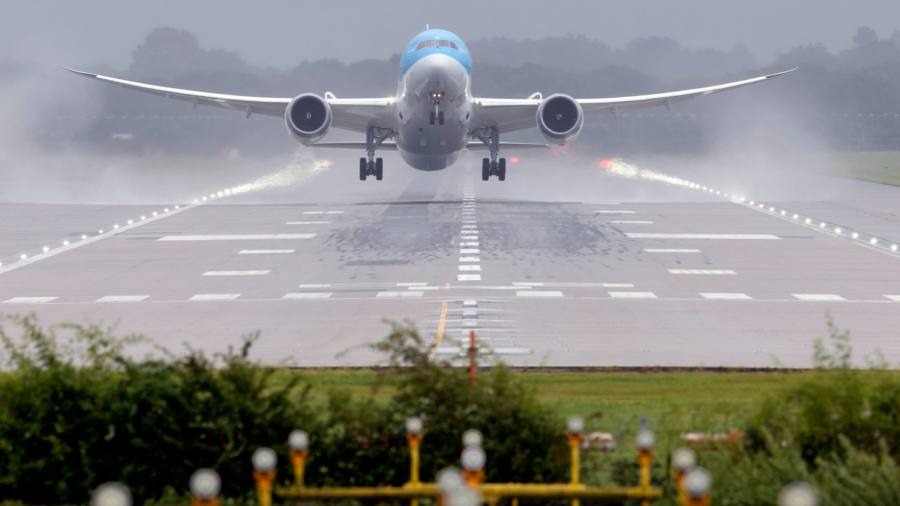
Airport claims runway brings £1bn, while critics cite pollution concerns
Gatwick submits £2.2bn runway plan to double passengers to 75 million, aiming for 14,000 jobs and £1bn boost to region. Critics argue increased flights will worsen noise, air pollution, and carbon emissions. Application lodged, approval process to take about a year.
Gatwick CEO, Stewart Wingate, expressed that the project would ensure the airport’s future and boost economic prosperity in the region. He emphasized that if approved, the plan would enhance airport resilience, meet future passenger demand, and foster competition in the London airport market by establishing crucial new international connections.
The initiative involves converting a taxiway into a functional runway by shifting its centerline 12 meters north, enabling simultaneous takeoffs and landings on the existing runway. The majority of construction will be confined within the airport perimeter, except for certain local road expansions and flyovers. Gatwick aims to commence work in 2025 and have the new runway operational by 2030.
Considering the timing of the decision around a potential general election, Wingate asserted that the plan should be evaluated based on its merits, irrespective of party politics. He affirmed that the proposal aligns with the current government policy of maximizing existing runways and is compatible with the “jet zero” ambition of achieving net-zero flying by 2050
Despite previously receiving support from influential political figures, Gatwick Airport has experienced a substantial loss of backing. Last week, the committee on climate change called on the government to halt any additional airport expansion in order to fulfill the UK’s net zero commitments by 2050.
The spokesperson for Sadiq Khan, the Mayor of London, who previously advocated for Gatwick’s plans, stated that the mayor remains dedicated to achieving London’s net zero target by 2030 and reducing air pollution. They emphasized the importance of the aviation sector’s contribution to these efforts and the need to avoid undermining the progress towards the goal
The mayor questions the justification of airport expansion if it contradicts climate crisis mitigation and achieving net zero targets.
According to Gatwick, regional sentiment largely favors the expansion plans, as indicated by a YouGov poll which reported that 78% of individuals in the surrounding counties supported the proposal.
Tim Norwood, Gatwick’s development director, noted a shift in perception during the pandemic, as the airport experienced closure and the neighboring town of Crawley faced high furlough rates. Norwood emphasized the importance of Gatwick thriving, as it provides employment opportunities for local residents who rely on the airport for jobs and economic benefits.
Despite the airport’s commitments to mitigate noise, Peter Barclay, chair of the Gatwick Area Conservation Campaign, expressed concerns about devastating local impacts and accused the airport of pursuing unsustainable growth solely for the benefit of shareholders.
Sally Pavey, from the Communities Against Gatwick Noise and Emissions group, accused the airport of attempting to secure a second runway through alternative means, following the Airports Commission’s decision to support only Heathrow’s expansion. She highlighted that Gatwick’s expansion would result in over a million additional tonnes of carbon emissions annually.
Stewart Wingate, Gatwick’s CEO, stated that after the decision, the airport had regrouped and focused on maximizing the utilization of its existing facilities. According to Norwood, the airport’s carbon dioxide emissions would increase by 16% after the expansion.
Alex Chapman, a senior researcher at the New Economics Foundation think tank, estimated that the expansion would incur an additional cost of £13 billion due to increased emissions. He argued that Gatwick’s primary function of facilitating British tourists traveling abroad and spending money overseas doesn’t align with the future costs associated with carbon emissions, making the economic viability of expanding air travel questionable.



